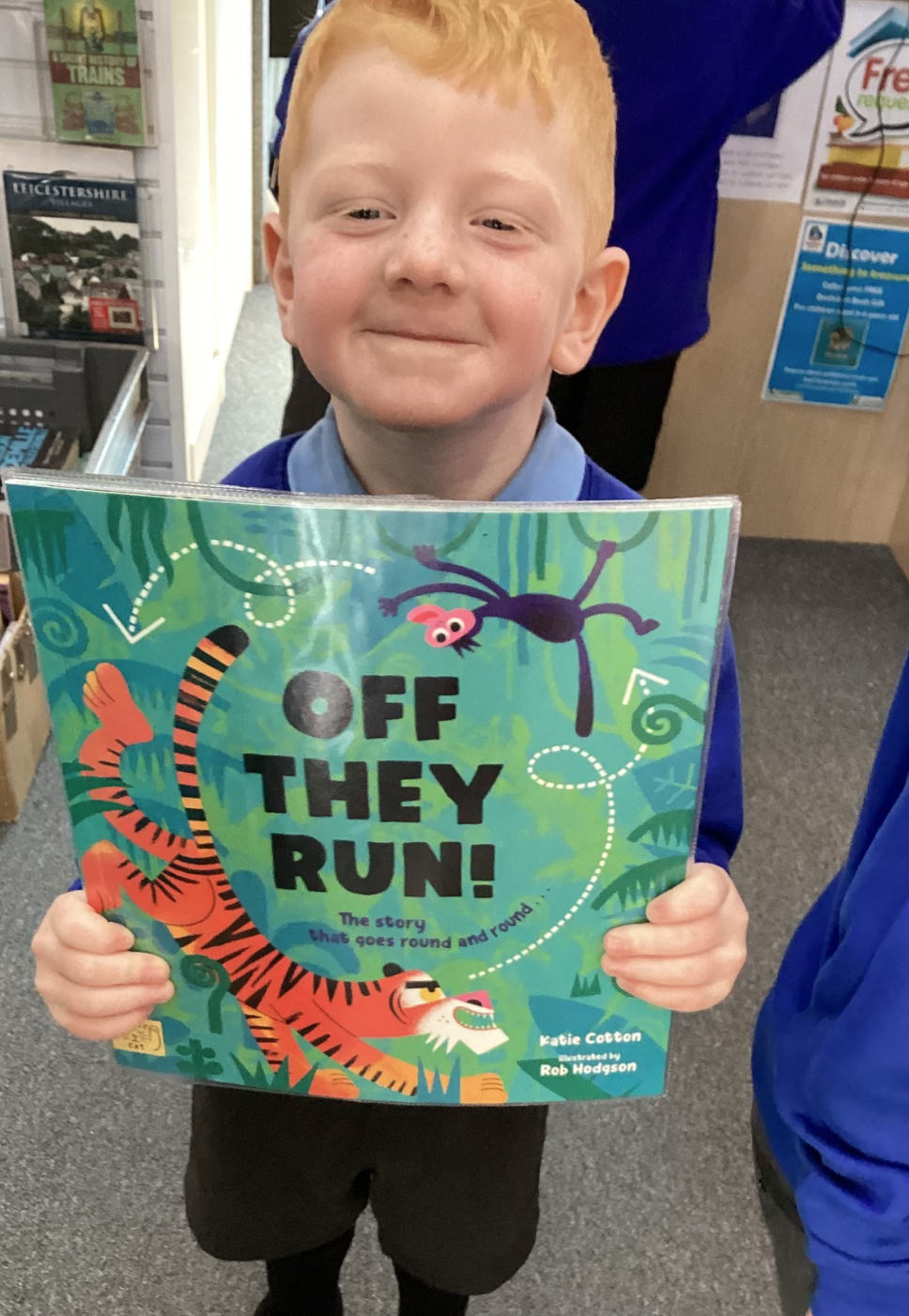English
At South Kilworth C of E Primary we place the highest importance on providing all children with a structured approach to learning to read from their very first days with us - it is at the heart of everything we do.
Our English lessons are centred around a range of high quality children's books. We very much link spoken language, reading and writing in order that children can become more confident in all areas of the curriculum.
Reading:
Children have daily opportunities to read. At times, they read individually, in pairs, in guided reading groups or as a whole class. Our reading curriculum is focused on word reading (decoding words) and understanding of texts (comprehension). We teach these skills alongside each other whilst teaching children to explore Vocabulary and be able to Infer, Predict, Explain, Retrieve and Summarise (VIPERS). Opportunities are planned in our lessons for children to talk about what they are reading, share opinions and discuss responses to texts. The children will be taught a range of reading strategies including phonic knowledge, grammatical awareness, word recognition and contextual understanding.
We have two lovely, well-stocked libraries and each classroom also has a wide selection of books for children to read. Parents are encouraged to support their children at home by creating reading opportunities and sharing a range of books together.
We aim for all children to become fluent, independent, enthusiastic and critical readers of stories, poetry, drama and non-fiction texts.

Spoken Language:
We encourage children to listen attentively and respond to stories, plays and poems. They have many opportunities to discuss, explain and describe situations whilst also considering the viewpoints of others. They learn to use language in imaginative ways and express their ideas and feelings through drama, and through reciting poems and stories.
Good communication skills are key across the curriculum and prepare children for their future lives. Children are encouraged to answer questions using sentence stems and sentences that are modelled by the teacher. We ask them to speak in full sentences and extend their answers by asking further questions.
Spelling and Phonics:
We use a phonics programme called Sounds-Write. Children, in their daily phonics sessions, are taught conceptual knowledge and skills that enable them to say the sounds, read and write the words.
Sounds-Write is a programme aimed at helping children learn to read quickly and easily. We introduce the children to the basic sounds in the English Language. Children then read story books that are carefully matched to the spellings and sounds that they have been taught. As they grow in confidence, children are then taught alternative ways of reading the same sounds and read books that contain them. We encourage children to use their knowledge of sounds when reading, rather than relying on picture clues, ultimately giving them the tools they need to read independently.
Support for Parents and Carers - Sounds-Write
The programme begins by teaching an ‘Initial Code’. During this phase, the children learn that:
- sounds can be represented by spellings with one letter.
- that some spellings are written with a double consonant.
- some spellings are written with two different letters.
Once the children are confident with applying this understanding in their reading and spelling, they move onto the ‘Extended Code’. During this phase, the children learn:
- a spelling can represent more than one sound.
- the most common sounds represented by the target spelling.
- how to manipulate alternative sounds in and out of words.
The phonics lessons that the children have in their early years at school feed into more focused spelling lessons, beginning in Key Stage Two. The children learn to break words down into their constituent sounds and syllables and are able to write these down. To develop their orthography skills, the children use an approach called Word Study, learning to recognise patterns in spellings and to identify what makes a word unique. This also involves understanding the meanings behind parts of words: knowing how a word has evolved in our language is an important step towards understanding how it can be used. Investigating and sorting words also supports children in their vocabulary development.
Writing:
Writing gives children a voice, an ability to share their thoughts and ideas. Children use their writing skills in almost all areas of the curriculum, and we want our children to be able to communicate with others confidently and creatively through their writing. Therefore, we place importance on making writing meaningful and emphasising its purpose – to entertain, to persuade, to inform or to discuss. Children write every day across the curriculum.
Underpinning our writing curriculum is our reading curriculum: we know children’s reading experiences are closely linked to the progress they make in writing. Carefully chosen, high-quality and challenging texts support the development of the children’s vocabulary and writing techniques. They expose children to a breadth of literature and allow them to engage with authors and the way they write.
Learning to write is complex. Central to our children’s learning is achieving increasing fluency in the skills of handwriting, grammar and punctuation. Each year group has a specific set of skills to learn in order to ensure a steady progression through school. Grammar and punctuation are taught in context and linked to the texts children are reading in class. Penpals for Handwriting is a complete scheme offering clear progression through five developmental stages. It teaches children a fast and fluent handwriting style to help them achieve their potential in writing.
Children also explore writing through drama and the spoken word. They are encouraged to articulate their thoughts and experiment with ideas and techniques. Clear teacher modelling of writing ensures that children are well-supported in creating their own compositions before being able to work independently.

